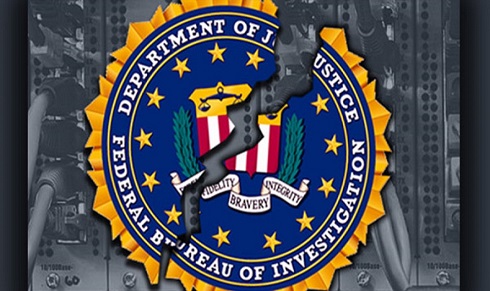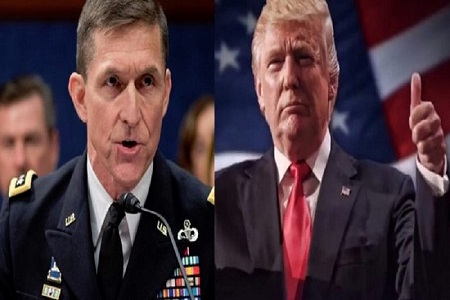FBI Director Wray Touts FBI Cyber Capabilities, But Ignores Deep State’s Coup Against Trump

During a special presentation by the Federal Bureau of Investigation’s top man, the subject of cyber threats to the U.S. government and the private sector took center stage. Despite allegations that the Obama administration, the intelligence and security agencies and the Justice Department’s “alphabet soup,” including the FBI, DEA, ATF and other agencies, ignored the intrusion of foreign intelligence services who committed acts of espionage, cyber theft and sabotage.
Although many within the law enforcement and intelligence communities are hoping U.S. Attorney General Bill Barr and FBI Director Christopher Wray will pursue investigations and possible indictments of those responsible for attempting to frame the current POTUS, Wray and Barr appear to have moved on.
Democrats continue to insist that Russian intelligence hacked into the government’s and the Democratic National Committee’s computer systems, the FBI is working full speed ahead to address cyber threats facing the nation, including foreign influence and foreign investment, Director Wray said at the cybersecurity conference last week..
“These threats strike—and they strike hard—at our security. That means our economic security and our ability to keep our companies safe from theft and intrusion,” Wray said. “It means our national security … it means our safety as everyday citizens walking the streets and sending our kids to school.”
Wray was the closing speaker at the International Conference on Cyber Security in New York City, which was co-sponsored by the FBI and the well-respected Jesuit institution of higher learning, Fordham University in the Bronx. Wray was aided by Rev. Joseph McShane, SJ, president of Fordham University, and the FBI’s New York Special Agent in Charge Aristedes Mahairas.
Wray described the many resources the FBI brings to its cyber mission—from Cyber Action Teams to the 24-hour command post known as CyWatch to the addition of cyber-focused legal attachés in FBI offices throughout the world.

Interference in U.S. elections is one of today’s most pressing cyber-related threats, and Wray discussed the FBI’s role to address these threats to the 2020 elections. Through its Foreign Influence Task Force, the FBI has foreign influence-related investigations open across the country. The Bureau’s efforts also involve building relationships with the private sector and information sharing.
“[T]he foreign influence threat isn’t just limited to election season,” Wray said. “We have to remain vigilant all year round. We have to raise public awareness and increase our country’s resilience in a more sustained and enduring way.”
Another threat facing the U.S. government is foreign investment in American companies, which can sometimes lead to the theft of intellectual property, sensitive data, or proprietary research. Wray urged caution in working with companies from adversarial countries because adversaries are willing to buy access to American proprietary information. In one case after another, classified information has been stolen by people who were never vetted and yet were given access to entire IT systems.
Wray also urged the public and private sectors to join one another in addressing the growing inability for law enforcement to lawfully access encrypted data of terrorists and criminals, sometimes referred to as “going dark.”
While the FBI supports strong cybersecurity, Wray said that no place should be completely off-limits to lawful access. He called it a “fundamental public safety issue” that hampers not only the FBI but also state and local law enforcement efforts.
Wray cited the example that nearly two years after the shooting at a church in Sutherland Springs, Texas, the FBI still cannot get into the shooter’s phone. While the gunman is dead and no longer a threat, access to that information could potentially help prevent a future attack. “If we were dealing with a living subject—someone we were still trying to track down, who could be out planning another attack—the situation could be even more dangerous,” said Wray.
This trend is made more complex by the advent of virtual currency such as Bitcoin, which some criminals use to conceal their illegal activities..
“It cannot be a sustainable end state for us to be creating some kind of unfettered space beyond the reach of lawful access for terrorists, hackers, and child predators to hide,” Wray said. “But that’s the path we’re on now if we don’t somehow come together to find a solution.”



Wray is no friend of the president or administration. He is as determined as Comey when it comes to protecting his pals in and now out of power in the fbi, cia, nsa, and others in government.
Are you afraid of what will come out if you go after these corrupted friends?